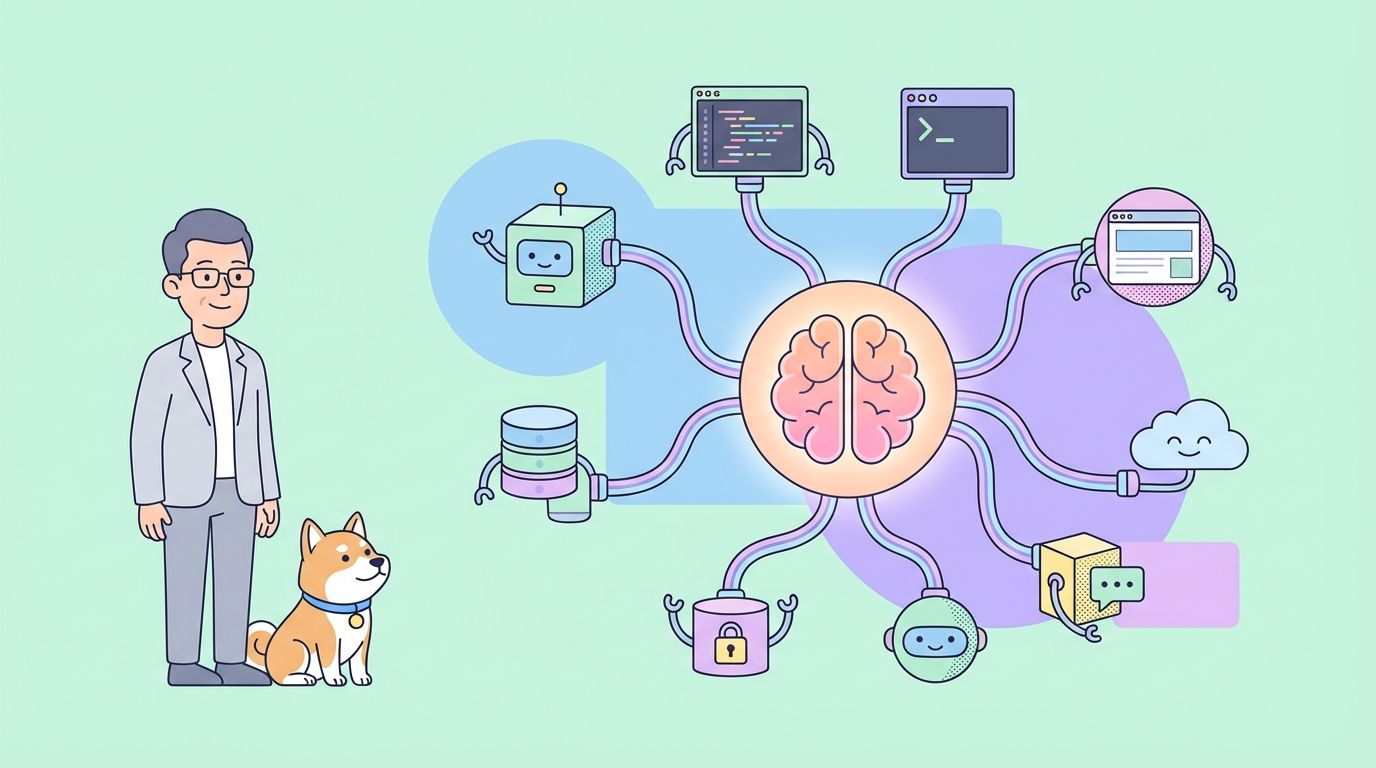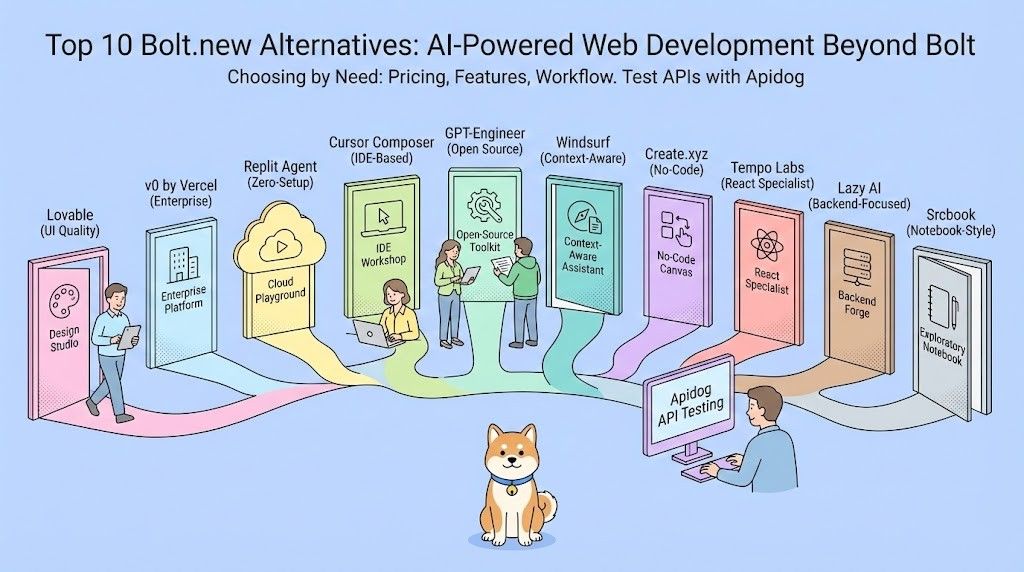Choosing the right Integrated Development Environment (IDE) as a Java beginner can dramatically impact your learning curve, productivity, and ability to build robust applications. With Java powering everything from web apps to backend APIs, your IDE should do more than just help you write code—it should support modern workflows, testing, and seamless API integration.
In this guide, we compare the top 7 free IDEs for Java beginners. You'll find strengths, practical use cases, and tips on integrating API development tools like Apidog to modernize your workflow.
Why IDE Choice Matters for Java and API Developers
For API-focused engineers, backend teams, and QA professionals, the IDE is your daily workspace. A good free Java IDE should:
- Simplify code writing and debugging
- Offer intelligent code completion and error highlighting
- Integrate with build tools, version control, and testing frameworks
- Support easy API testing and documentation
As Java projects increasingly depend on APIs, it's essential to choose an IDE that not only helps you code but also fits into a modern API-driven development cycle. Tools like Apidog can further streamline your API design, mocking, testing, and documentation—complementing whichever Java IDE you choose.
1. IntelliJ IDEA Community Edition: Smart Features for Modern Java
IntelliJ IDEA Community Edition by JetBrains is widely recognized for its professional-grade tooling—offered for free.
Key Advantages:
- Smart code completion: Context-aware suggestions to speed up writing and improve accuracy.
- Real-time error detection: Immediate feedback and quick fixes for syntax or logic errors.
- Advanced debugging: Visual breakpoints, variable inspection, and step-through debugging.
- Integrated version control: Native support for Git, SVN, and more.
- Plugin ecosystem: Extend functionality for Java frameworks, languages, and tools.
- JUnit/TestNG integration: Built-in support for automated testing.
Example Workflow:
When building a RESTful backend, you can use IntelliJ's HTTP client to test endpoints. For more complex API workflows—like automated contract testing or collaborative API docs—integrate Apidog alongside your IDE for a seamless handoff from code to live API validation.
2. Eclipse IDE: Versatile, Reliable, and Widely Adopted
Eclipse IDE is a staple in both academia and industry, thanks to its extensibility and strong Java support.
Highlights:
- Modular plugins: Install only what you need, keeping your interface simple as you learn.
- Comprehensive templates: Quickly scaffold projects for web, desktop, or backend.
- Powerful debugger: Step through code, monitor variables, and resolve issues efficiently.
- Build tool integration: Supports Ant, Maven, and Gradle.
- Team features: Shared workspaces and code reviews for collaborative environments.
- Cross-platform: Consistent on Windows, macOS, and Linux.
Practical Tip:
Eclipse is often used in education, so many open-source Java tutorials reference it. For API development, use Eclipse's REST Client plugins or connect your Eclipse projects to Apidog for API design, mocking, and testing.
3. NetBeans IDE: Streamlined for Beginners
NetBeans IDE (from Apache) is arguably the easiest entry point for Java newcomers.
Key Features:
- Drag-and-drop GUI builder: Build user interfaces visually—no Swing or JavaFX code needed.
- Pre-configured templates: Start new projects with minimal setup.
- Code hints and auto-completion: Prevent errors and learn Java syntax as you go.
- Built-in profiling: Analyze memory and performance.
- Seamless Maven integration: Effortless dependency management.
- Multi-language support: Explore Scala, Kotlin, and other JVM languages.
Example:
If you're prototyping a desktop Java app that consumes remote APIs, NetBeans lets you focus on logic while Apidog handles API mocking and testing in parallel.
4. BlueJ: Purpose-Built for Learning Java
BlueJ targets education, making object-oriented programming concepts tangible for beginners.
Standout Features:
- Visual class diagrams: Instantly see how classes relate and interact.
- Interactive object bench: Create and test objects/methods without writing test harnesses.
- Simplified project management: Focus on code, not build systems.
- Integrated documentation: Encourage best practices from the start.
- Scope highlighting: Visualize variable and method accessibility.
Use Case:
Perfect for students or anyone new to Java. When ready to move beyond local experiments, add Apidog to simulate real-world API calls or document your test APIs.
5. Visual Studio Code: Lightweight, Flexible, and Extensible
Visual Studio Code (VS Code), thanks to its Java Extension Pack, is now a strong contender for Java work.
Key Benefits:
- IntelliSense: Fast, context-aware code completion.
- Integrated terminal and Git: Everything in one window.
- Robust debugging: Breakpoints, call stacks, and variable watches.
- Large extension marketplace: Add tools for frameworks, linters, and API testing.
- Cross-platform: Identical on Mac, Windows, and Linux.
How to Use:
VS Code is ideal for microservices or cloud-native workflows. Install REST Client or Apidog extensions to test APIs directly from your editor.
6. jGRASP: Visualize Code Structure and Logic
jGRASP is designed to help beginners see how their code works.
Top Features:
- Control Structure Diagrams (CSDs): Instantly visualize loops, conditionals, and method calls.
- Data structure viewers: See arrays, lists, and trees as you code.
- Complexity graphs: Spot problematic code early.
- UML diagrams: Understand object relationships.
- Lightweight and fast: Minimal setup, runs on almost any machine.
Best For:
Visual learners who want to understand what their Java code is doing. Pair with Apidog for visual API mockups as your projects get more complex.
7. Android Studio: The Go-To for Mobile Java Development
Android Studio is essential for anyone building Android apps in Java.
Main Features:
- Visual layout editor: Drag-and-drop UI for fast prototyping.
- Emulator integration: Test on virtual devices instantly.
- Gradle-powered builds: Modern dependency management.
- APK analysis: Inspect app size and structure.
- Cloud integration (Firebase, etc.): Add backend features with clicks.
- Performance profilers: Optimize for speed and battery life.
Tip:
APIs are central to mobile apps. Use Android Studio for app logic, and tools like Apidog for rapid API prototyping, testing, and documentation—making sure your app’s backend is as robust as your code.
Accelerate Your Java & API Development Workflow
Choosing the right free Java IDE is about more than comfort—it's about building a foundation for real-world development, where APIs, testing, and collaboration matter.
Summary Table:
| IDE | Best For | Notable Feature |
|---|---|---|
| IntelliJ IDEA CE | Professional workflows | Smart completion, debugging |
| Eclipse | Versatility, large projects | Plugin ecosystem, team tools |
| NetBeans | Simplicity, quick setup | GUI builder, Maven integration |
| BlueJ | Absolute beginners | Visual class diagrams |
| VS Code | Lightweight, extensible | Extensions, integrated Git |
| jGRASP | Visual learners | Code and structure diagrams |
| Android Studio | Mobile app development | Visual UI, emulators |
Integrating API Workflows with Apidog
Regardless of your chosen IDE, modern Java applications rely on APIs for everything from database access to service orchestration.
How Apidog Complements Your IDE:
- API design: Visual editors for RESTful endpoints
- Mocking: Generate sample data and test without backend readiness
- Automated testing: Validate contract and regression scenarios
- Interactive docs: Share API details with your team instantly
Instead of switching between multiple tools, Apidog streamlines every API lifecycle stage—integrating naturally with your Java development process. This reduces friction, accelerates delivery, and ensures your APIs are reliable and well-documented.
Ready to boost your Java and API development?
Pick the IDE that fits your style, and let Apidog handle the API design, testing, and documentation—so you can focus on building great applications.



